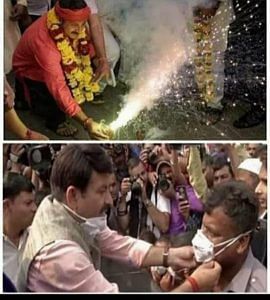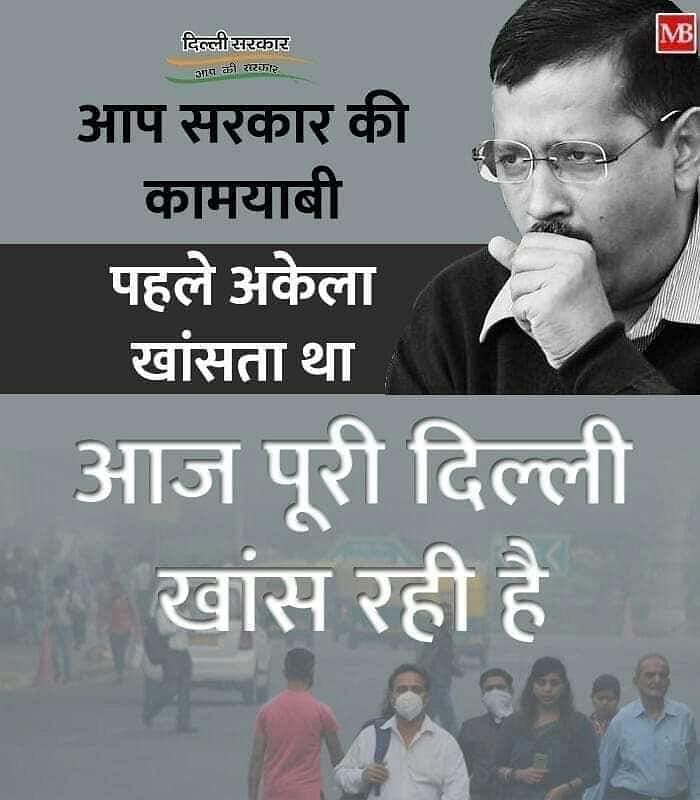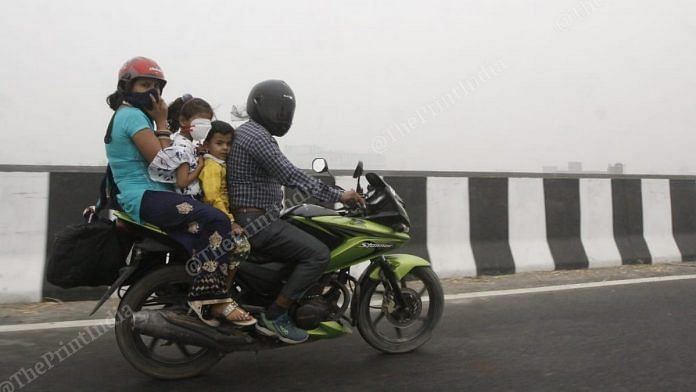As people of Delhi and NCR coughed their weekend away under the ‘hazardous’ blanket of thick, noxious smog, it forced politicians like Arvind Kejriwal, Captain Amarinder Singh, Prakash Javadekar and Mayawati to speak up.
A natural question arises: is air pollution a political issue in India, and is Delhi’s public health emergency creating the space for an informed environmental leadership? A more pressing question, of course, is whether the choking air can become a needle-moving issue in the 2020 Delhi assembly election.
As schools remain shut, and Arvind Kejriwal-led AAP government once again rolls out the odd-even car rationing scheme, much depends on what happens as Delhi’s pollution crisis moves from being a social battle to a political fight. That the issue has become politically important is good, but it might just get entangled in partisan politics in the election season. And that may not bring the desired relief for residents.
Also read: Delhi’s AAP govt blames everyone but itself for capital’s smog crisis on Twitter
Can air quality sway voters?
Just two years ago, Congress leader from Haryana Deepender Hooda had said that Padmaavat not pollution becomes a political issue in India. A society has to cross a sort of democracy threshold before issues like air quality can begin to sway voters. And Delhi appears to have reached that point now.
The middle class and the media have already become what the chancellor of University of Houston Renu Khator calls ‘articulators’ and ‘successful surveillants’ of the pollution issue in Delhi over the past few years. We have also had three decades of judicial intervention on this.
Now, Delhi is witnessing the politicisation of the pollution debate. The issue is now just one step away from the ballot box. BSP chief Mayawati likened the problem to demonetisation and unemployment. Punjab Chief Minister Captain Amarinder Singh called upon the Narendra Modi government to compensate farmers for stubble management. Uttar Pradesh minister Sunil Bharala sought divine intervention in the matter and asked governments to perform yagya.
And on political WhatsApp groups, meme wars have already begun.


2020 is not 2003
But this won’t be the first-time air pollution has played out in the Delhi election. The first pollution crisis was fought by the Congress government of late Sheila Dikshit between 1998 and 2003.
In the 1998 election, calling Delhi ‘the pollution capital’ was one of main attacks of the Congress against the BJP-ruled government in Delhi. The Congress won and Sheila Dikshit set out to change Delhi’s public transport fleet – vehicular pollution was a large contributor to the overall pollution at that time because of poor quality fuel and old vehicles with outdated engines. The Supreme Court set a deadline of 2001 for buses, taxis and autos to convert to CNG. Despite widespread protests, Dikshit introduced CNG.
In the subsequent election in 2003, ‘saaf hawa’ was one of the Congress campaign slogans. The Congress even ran a campaign film that mentioned how a Delhi resident’s white shirt used to turn black due to pollution earlier. But that was a thing of the past because of Sheila Dikshit’s measures.
Environmentalist Sunita Narain wrote: “Before the Delhi assembly elections in 2003, political parties vied with each other to take credit for CNG. Delhi’s democracy had matured.”
Perceptible improvement in clean air was widely accepted as one of the factors for Sheila Dikshit’s victory – probably for the first time in India. In the 2019 Lok Sabha elections, the Congress and the BJP manifestos even pledged to tackle the country’s air pollution.
But 2020 is not 2003.
The CNG conversion was an easy and a contained solution, compared to getting farmers in other states to stop their stubble burning practices. Also, Arvind Kejriwal is up against a formidable BJP and its social media machine today. With just the odd-even scheme to show, he is likely to struggle to demonstrate visible improvement like Sheila Dikshit once did. He can claim that 24-hour electricity has brought down generator use and that community Diwali was an important step. All weekend, he has been issuing radio advertisements saying pollution levels went down 25 per cent in the months preceding Diwali.
But for residents, the winter sky after Diwali is the real test.
Also read: Rising air pollution is fuelling violent behaviour, say scientists
A finger-pointing exercise
The acrid smog may have just presented the BJP with a perfect campaign pitch. The party has been floundering until now to come up with a charismatic local leader or an issue to challenge Arvind Kejriwal in the 2020 Delhi election campaign. Now they have an issue to attack him with.
However, all this political attention to air pollution risks getting reduced to a finger-pointing exercise. Already, Deputy Chief Minister of Delhi Manish Sisodia has blamed Union Environment Minister Prakash Javadekar for postponing three environment meetings. Javadekar blamed the Kejriwal government for not giving Rs 3,500 crore for the Eastern Peripheral Expressway, which would have eased the vehicular overload in Delhi. And Congress’ Delhi leader Kirti Azad attacked both the AAP and the BJP for the mess.
A public health issue that requires bipartisan collaboration is now caught in polarised politics. The impending election in Delhi should ideally get all the parties to hunker down and fix the problem in order to check the voter ire. But the election may just have the opposite effect too – an excuse not to collaborate or do anything. Like BJP leader Vijay Goel, who sat on an anti-pollution dharna but called odd-even an election stunt two days later and even vowed to flout it.
Also read: Delhi’s air pollution masks a class war that nobody is willing to talk about




Kejriwal is good for nothing CM. Only a miracle would get him reelected.
Is the air in Gurgaon and Noida any more breathable than Delhi’s in winter ?